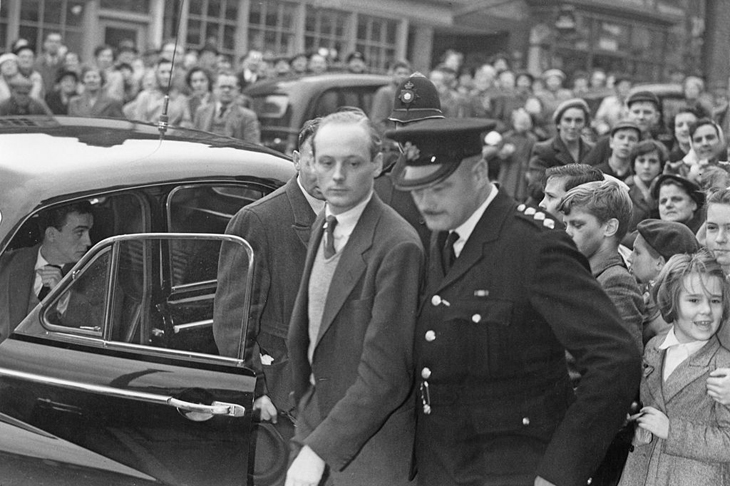The credit for decriminalising male homosexuality in 1967 — for those over 21 in England and Wales at least — goes to Harold Wilson’s government, the Labour MP Leo Abse, and the Conservative peer Arthur Gore, 8th Earl of Arran.
Yet more than a decade before the Sexual Offences Act received royal assent, a journalistic campaign to overturn an unjust and unworkable law had begun in the pages of The Spectator. After the dust had settled in post-war Britain, disparate MPs held the sincere but mostly tacit belief that the law criminalising homosexuality desperately needed amendment, if not scrapping entirely. The Spectator was swift to champion the cause, in particular the key recommendation of the Wolfenden Report of 1957 that homosexuality in private be legalised between adults over 21.
A leading article in September 1957 set out the magazine’s position: ‘Whatever feelings of revulsion homosexual actions may arouse, the law on this point is utterly irrational and illogical. It is impossible to argue that homosexual actions between consenting males are more anti-social than adultery, fornication, or homosexual actions between consenting females, none of which are crimes.’
The article referred to the so-called Montagu Case, the most prominent of thousands of criminal trials for homosexual activity brought each year. In 1954, Lord Montagu of Beaulieu was imprisoned for 12 months for ‘consensual homosexual offences’ with some guests on his private estate; two of his friends received 18 months. The verdict so outraged The Spectator’s editor and proprietor, Ian Gilmour, that he wrote a 2,500-word broadside under his own name, which asserted that the trial was prejudiced by police malpractice. Gilmour subsequently opened up the pages of The Spectator to frank discussion of the issue and campaigned for a Royal Commission.
In January 1955, for example, the magazine ran a candid autobiographical article, giving ‘a biological homosexual’s view’. The writer, understandably not named, objected that homosexuals were ‘debarred from a permanent and publicly esteemed cohabitation with a loved and loving partner’. The open expression of such attitudes prompted widespread hostility in the press. John Gordon, the editor-in-chief of the Sunday Express, dubbed The Spectator ‘the Bugger’s Bugle’ for having trumpeted reform so loudly. At that time, the News of the World called homosexuality ‘the evil in our midst’, and the Sunday Pictorial published a three-part series on ‘evil men’ that argued that this ‘unnatural sex vice’ produced ‘the horrors of Hitlerite corruption’ in Germany, ruined classical Greece and would in turn destroy Britain.
Uncowed, The Spectator openly supported the creation of the Wolfenden Committee and expressed its hope that the committee could find the moral strength to tackle ‘a field of enquiry in which prejudice is bitter’. As heels continued to drag throughout Macmillan’s prime-ministerial terms (1957-63), The Spectator remained a vocal and engaged campaigner.
In 1960, three gay men turned to the magazine to come out: the joint letter in their names complained that homosexuality ‘is often called a problem, but is only a problem because of the prevailing attitude towards it and because of the ludicrous law’.
Throughout the turmoil, the magazine received supportive letters from all quarters. It was unsurprising that Leo Abse, the MP who proposed the decriminalisation of homo-sexuality in 1961, saw The Spectator as a long-standing ally in the campaign.
For almost half a millennium, male homosexuality was outlawed: Henry VIII imposed his ‘Acte for the punysshement of the vice of Buggerie’ in 1533. Eventually, half a century ago last Thursday, major progress was made in overturning the substance of that law. The pages of this magazine went on to argue for lowering the age of consent to 16, and incorporating Scotland and Northern Ireland into the law.
The Spectator never preached to its readers: its comment and letters pages hosted the full spectrum of opinion with respect. It led the columnist Alan Watkins to observe that ‘in many respects Gilmour’s Spectator of the 1950s anticipated the Britain of the 1960s’. Here’s a timely reminder that an often conservative magazine can help usher in such progressive reforms.






Comments